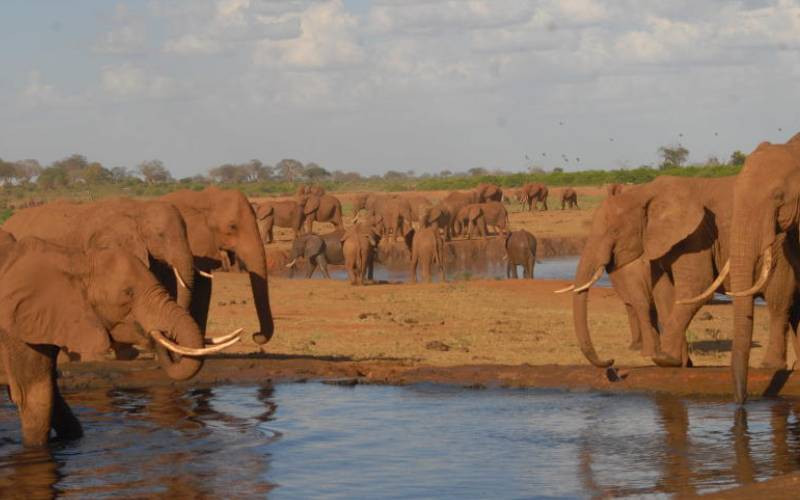Every Christmas, Christians in Kenya indulge in an orgy of piety and celebration. For good measure, those Kenyans who aren’t Christian, or are agnostic and non-believers, join the festive season willy-nilly. We are always sure of this – lots of food and drink are consumed and plenty of gifts exchanged. Lovebirds find erotic time for each other. Only the Grinch-like sulk in a corner by themselves. Merchants celebrate good sales. Those who lost loved ones – or are facing tragedy – are mournful. We hope they heal. Sundays too are mini Christian holidays. But who goes to Church and means it? Or do hypocrites pack the pews, lift the Holy Book, and shout the Lord’s name in vain? Do Kenyans truly fear God?
This isn’t a column about belief in God. Nor is it on whether the Almighty exists. Nyet. It’s a piece about how we use God, especially during the most festive times of the year for Christians. I chose the term “use” because to many – if not most – Kenyans God is a “thing.” Most have an existential conception of God as a being that lives up in the sky. That’s why most believers supplicate themselves by turning their palms upwards, or looking to the skies. I use the term “God-fearing” deliberately. Fear and love, or respect are different. But you can still do the right thing out of fear, respect, or love. The boat that gets you there doesn’t matter.
No redemption
Hypocrisy, however is a different matter. It’s not fear, love or respect. Hypocrisy is one of the worst of all human emotions. In my view, hypocrisy is the most inferior emotion. It’s a calculated impulse of utter deception driven by the most banal and selfish interest. It has no redemption, or salvation. I would rather know where a person stands – even if it’s an evil place – than be deceived by hypocrites. Hypocrites are cowards. A hypocrite will smile at you and stab you in the back. In cold blood. As the saying goes, hypocrisy is the homage that vice pays to virtue. A hypocrite says one thing and deliberately does another.
To many Kenyans, God is a strategic asset. In other words, their “belief” in God isn’t real. Yes – they go to Church. Yes – they pray. Yes – they hold themselves out to the public as Christians. And yes – they perform all the rituals of the religion and raise their children in the faith. But it’s all a matter of strategy. Strategic Christianity, as I call it, started during colonialism. Black Africans who wanted to advance in the colonial period “became” Christians. This was necessary to gain access to schools, health care, and other services. It was akin to today’s “gospel of prosperity.” Except it was a survival strategy then. But what was strategy has become a way of life.
That’s why many Christians can go to Church and go through the motions and rituals of the religion without a single intention of living by its teachings. In fact, Sunday Church is simply another social ritual. As is Christmas.
The Church is a networking site. For most politicians, the Church is a place for them to “prey” on voters by shedding crocodile tears of piety. The Church is to politicians what a yellow fever vaccination is to a traveler. It’s a necessity for survival because it inoculates you against the predations of nature, or in this case, the condemnation of the voters. For how can the gullible electorate condemn a church-going “pious” politician? The Church is antidote against criticism.
Look at this way. If Christianity wasn’t a strategic religion for most Africans, why would they have abandoned their African spiritualities to embrace a completely alien and foreign religion? My grandfather wasn’t a Christian, and didn’t become one. Matter of fact, my late grandfather saw the first white man come up the hill carrying a bible. The one that the Kamba prophetess Syokimau had foreseen. My granddad refused to succumb to the new faith. But my parents did – for strategic reasons. That’s how I was raised as a Catholic. I think this disconnect – between the faith and our history – is the major reason for the hypocrisy that dogs many Kenyan Christians. It was a “thing” imposed on our ancestors.
Freedom of conscience
I believe in the freedom of conscience and belief. I will defend to the death a person’s right to worship who, and how, they deem fit. That’s unarguable. I will also defend to the death the rights of agnostics and unbelievers to be left alone. To each his or her own. That’s the position of the 2010 Constitution in spite of its invocation of the term God in the preamble. But these constitutional protections for belief and non-belief don’t sanctify religious hypocrisy. Nor do they make Kenya a God-fearing nation.
- The writer is SUNY Distinguished Professor at SUNY Buffalo Law School and Chair of KHRC. @makaumutua
 The Standard Group Plc is a multi-media organization with investments in media
platforms spanning newspaper print operations, television, radio broadcasting,
digital and online services. The Standard Group is recognized as a leading
multi-media house in Kenya with a key influence in matters of national and
international interest.
The Standard Group Plc is a multi-media organization with investments in media
platforms spanning newspaper print operations, television, radio broadcasting,
digital and online services. The Standard Group is recognized as a leading
multi-media house in Kenya with a key influence in matters of national and
international interest.
 The Standard Group Plc is a multi-media organization with investments in media
platforms spanning newspaper print operations, television, radio broadcasting,
digital and online services. The Standard Group is recognized as a leading
multi-media house in Kenya with a key influence in matters of national and
international interest.
The Standard Group Plc is a multi-media organization with investments in media
platforms spanning newspaper print operations, television, radio broadcasting,
digital and online services. The Standard Group is recognized as a leading
multi-media house in Kenya with a key influence in matters of national and
international interest.









